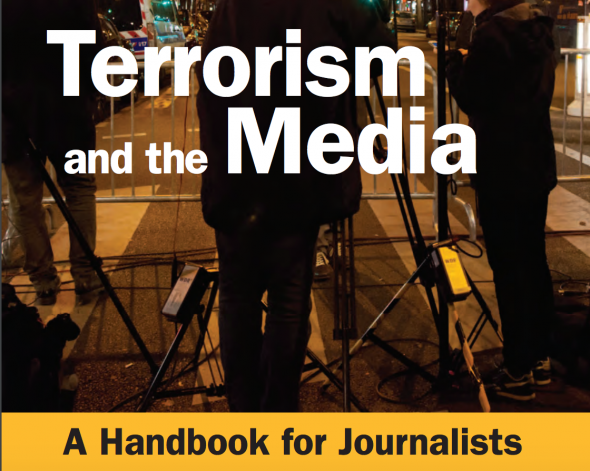Growing up in a post-9/11 world, while also becoming a journalist was interesting. As one of the youngest to remember the terrorist attack that changed the world, I was increasingly aware of ominous and growing threats, but as a journalist I watched as the media struggled to cover these events.

One of the hardest conversations happening around me is
the discovery that terrorist and the media have a mutually
beneficial relationship.
Terrorist receive exposure and attention. They have a platform to spread their message even if its presented in a negative light. And the media receives millions of clicks because news becomes the most important in times of fear.
So how do we balance a public need for information and the need to minimize and possibly spread the influence of terrorists?
The media cannot ignore the terrorist attacks happening around the world because, as stated in UNESCO’s Handbook for Journalists, “the media are critical in providing verifiable information and informed opinion.”
Media needs to be informative, giving the appropriate coverage to the deaths of people around the world. And we need to resist the urge to sensationalize the deaths and destruction because terrorists goal is to incite terror. And more often than not, that terror comes from seeing these acts plastered across platforms, which can further incite support for terrorists.
For example, after 9/11 the nation was shocked and the heightened coverage which no one can argue was justified caused a domino effect. Fear and hysteria led the government to start a war that created more resistance against the U.S. and grew the terrorists groups.
So how can the media reverse or squash this mutually beneficial relationship?
I think the answer to this question involves the media, in every platform and from every political bias, to follow a universal code like the one UNESCO provided. There’s a reason these handbooks exist.
News executives need to implement these policies, which aim to provide the best information to a fearful public without sensationalizing and spreading a terrorists agenda.
But to start, people in the media and in the public need to talk to about these issues. We need to talk about how rampant terrorism is in our world and what everyone can do to fix it. We need to talk about it in conference rooms and in coffee shops because being aware of these issues is the first step towards fixing them.


Tynin, great ending to your post. I agree in that we need to address the issue by talking about it, whether it’s among journalists or between media and general public. As terrorist acts grow more and more cruel and extreme, we can’t avoid the topic. That being said, I also agree with your point about the media’s role as part of the solution. We bear a great responsibility to inform and educate the public, which means we have to be careful in how we portray these acts.